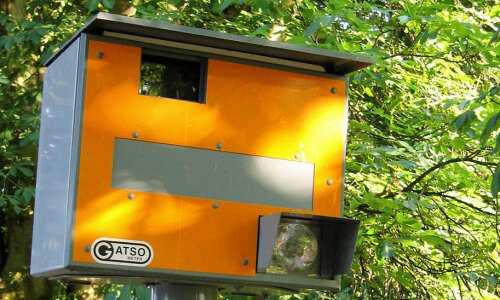
Councils back £1m Birmingham-Solihull speed camera experiment
Birmingham and Solihull councils are to spend £1 million on a digital speed camera experiment.
A pilot study will see up to seven cameras placed at accident black spots in Birmingham and three in Solihull, as well as two new average speed enforcement units.
The scheme, which has the backing of West Midlands Police and Crime Commissioner David Jamieson, could be extended across the region if it is successful.
Mr Jamieson has made it a priority since being elected in September to restore the region’s speed cameras which were switched off in 2013. Since that time, speed enforcement has been carried out by four mobile camera units.
The two councils and West Midlands Police are tendering for digital camera technology to replace old ‘wet film’ safety cameras.
A spokeswoman for Birmingham council said the pilot would enable the road safety benefits arising from speed camera installations to continue into the future, which otherwise would not be practical or cost-effective with the older and outdated technology.
Birmingham Council will pay £600,000 to get the scheme up and running and Solihull Council will contribute a further £400,000.
Cllr James McKay, cabinet member for social cohesion, equalities and community safety at Birmingham city council, said: “Road accidents continue to affect too many residents and visitors to the city – eight people are injured every day, another is seriously injured and every fortnight we suffer one death.
“These road accidents are often devastating and tragic consequences for those involved as well as their family and friends.
“This pilot will help make roads safer and provide the police and local councils with data that will help inform any potential roll out of more cameras in the future.”
It is anticipated that subject to a suitable technology partner being identified, the cameras will go live in August 2015, for the pilot which will conclude in April 2017 – ahead of possible further extensions to the scheme in the autumn of that year.
Cllr Tahir Ali, Birmingham cabinet member for development, transport and the economy said: “Beyond the tragic consequences for families affected, road traffic collisions also cost over £220 million each year to the Birmingham economy.
“Collisions inevitably add to congestion, causing delays and disruption to road users, not only on the road on which the collisions take place, but also to people in the surrounding area.
“Therefore, it is only right we look at how we can reintroduce speed cameras to our roads, because the positive impact they have for urban mobility should not be ignored.”
The camera locations will be determined once all bids from suppliers have been considered. They will be selected based upon factors including known local problems with speeding motorists and accident history.
Similar Articles
Street takes to the Road 0
Andy Street, Conservative candidate for Mayor of the West Midlands, is to take his campaign "to
Metro Mayor: Are you stepping up UKIP? 2
There are four months to go to the first mayoral election in the West Midlands
Brexit: what’s the plan? 0
Yesterday, Sir Ivan Rogers, the UK Permanent Representative to the European Union (the country's most senior
Council overseer becomes Queen’s man in the region 0
John Crabtree, who chairs the Improvement Panel overseeing the implementation of the Kerslake Review into
Gill and Sleigh top regional political honours 0
Labour MEP and Conservative Solihull council leader top list of honours for regional politicians. Neena Gill,










